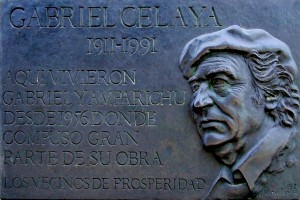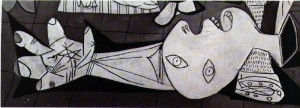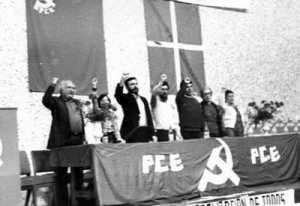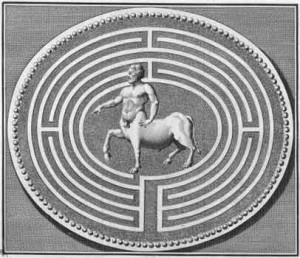Gabriel CELAYA
(Hernani, Guipúzcoa, 1911 – Madrid, 1991)
Celaya is an artiste of many facets: born in the Basque country at the time of its heavy Industry boom, he forged for himself a career in his family’s Engineering works, which allowed him sufficient financial independence to follow the interest closest to his heart: poetry and left-wing politics. He succeeded to carve for himself a reputation of an “engaged” poet and fan of Fidel Castro and his Cuban social experiment.
Celaya’s silence over the plight of his fellow writers in Berlin (1953), Budapest (1956), Prague (1968), or indeed in Stalin’s gulags, is consistent with his putting his name forward as a candidate of the Spanish Communist Party, in the 1977 general elections, in his native Guipuzkoa. He did not get in, but it did not matter! By this time he was idolised as a national literary hero (and survivor), having heaped on him moult Literary prizes: Critics’ Award (1957), Libera Stampa International Award (1963), Etna-Taormina International Award (1967), Atalaya Award (1967) and finally the National Spanish Literature Award (1986).
Given such success, it is reasonable to think that Celaya may have dreamt of a Nobel Prize, but this, sadly, eluded him, as by then, such accolades went instead to other “engaged” fellow-writers in the East, such as Pasternak (1958), Solzhenytsyn, (1970) Walesa (1983), or Brodsky (1987), who appraised the world of the stark realities of the ‘communist paradise’ – realities which Celaya, sadly, chose to ignore.
Notwithstanding such reticence, the poet remains one of the greats of Basque (and Spanish) literature, who left behind a prodigal output: he was lucky to be a gentleman of independent means – he had the family fortune behind him to allow him the freedom of following his literary and political dreams: it does not make him a lesser poet for it, but certainly one who enjoyed the spoils of personal riches to allow him the freedom of his thoughts.
Terror of the Open (Terror de lo Abierto)
TEROAREA SPAŢIULUI
Labirint din exterior –
siluete, înconjur;
labirint din interior,
lumini, oglinzi.
Ce aflăm?
Spaţiu fără centru
Sfială faţă de nimeni,
univers la punctul zero.
Nicăieri nici un control,
Nici o piedică.
Teroare! Spaţiu
fără iertare.
Doar urlet. Şi e teribil,
fără ecou.
Întoarcere în peşteră
şi în spaimă,
vorbind singur despre
cerul la punctul zero.
Labirint final: Şarpele
cugetului.
Versiune în limba Română
de Constantin Roman
Londra, 29 August 2011,
© 2012, Copyright Constantin Roman
TERROR DE LO ABIERTO
Laberinto de fuera,
figures rodeos;
laberinto de dentro,
focos, espejos.
¿Qué se descumbre?
El espacio sin centro
La conciencia sin nadie
Y el mundo al cero.
No hai vigilante.
No hay nadie en medio.
¡Terror! El espacio
simplemente abierto.
Se grita. Y es terrible,
No hay eco.
Y uno vuelve a la cueva
y al miedo,
y a hablar consigo mismo
Del cero-cielo.
Laberinto final: Sepiente
del pensamiento.
(Buenas dias. Buenas noches, 1976)






No Comments so far ↓
Like gas stations in rural Texas after 10 pm, comments are closed.